
hotline:
17715390137
Tel/Wechat:
18101240246 (Technology)
0512-68565571
Email:mxenes@163.com (Sales Engineer)bkxc.bonnie@gmail.com
Scan the code to follow or search the official account on WeChat:
2D Materials Fronrier After paying attention,
click on the lower right corner to contact us,
Enter enterprise WeChat.
Professional Services Online



MXene is a two-dimensional star material that is even hotter than graphene. As an advanced MXene manufacturer, North Konami offers special offers, 10% off mxene and other materials, and North Konami launches new mesoporous material products with more preferential prices , waiting for you to spike!
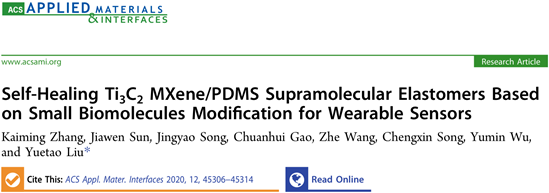

In the past few decades, flexible sensors have been widely used in medical monitoring, robotics, human-computer interaction and other fields. However, during use, the sensor will inevitably be mechanically damaged, resulting in cracks, scratches and even breaks on the surface. These structural damage can cause the sensor to lose its normal function. Therefore, the development of self-healing flexible wearable sensors is of great significance to maintain their stability and function.

Recently, Professor Liu Yuetao of Qingdao University of Science and Technology published a research paper titled: Self-Healing Ti3C2 MXene/PDMS Supramolecular Elastomers Based on Small Biomolecules Modification for Wearable Sensors in the internationally renowned academic journal ACS Applied Materials & Interfaces. Self-healing Ti3C2 MXene/PDMS supramolecular elastomers based on biomolecular interactions exhibit excellent mechanical properties, stability, and electrical sensitivity, and explore their application value in wearable sensors. MXenes were modified by esterification of carboxyl and hydroxyl groups using D-asparagine from Liliaceae. At the same time, 3,4-dihydroxybenzaldehyde in forest and grass plants was grafted to PDMS macromolecules with amino groups through imine bonds by Schiff base reaction. The A-MXene/D-PDMS elastomer can self-heal at room temperature under the action of hydrogen bonds and imine bonds after breaking. After restoration, the mechanical and electrical properties were almost completely restored. Due to the uniform dispersion of A-MXenes in the polymer system, the composite exhibits good electrical conductivity and sensitivity to stress state changes. Even the repaired material was able to successfully monitor both gross and subtle movements of human muscles. Therefore, the self-healing conductive composites based on biomolecule modification can serve as a reliable platform with potential applications in motion monitoring and speech recognition.

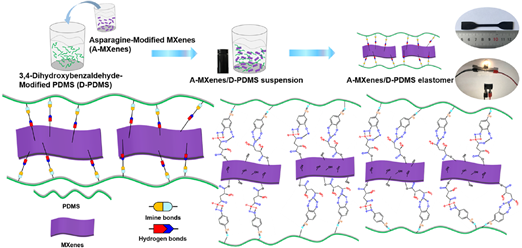
Figure 1. The main preparation process of A-MXene/D-PDMS elastomer and the interaction between A-MXene and D-PDMS.
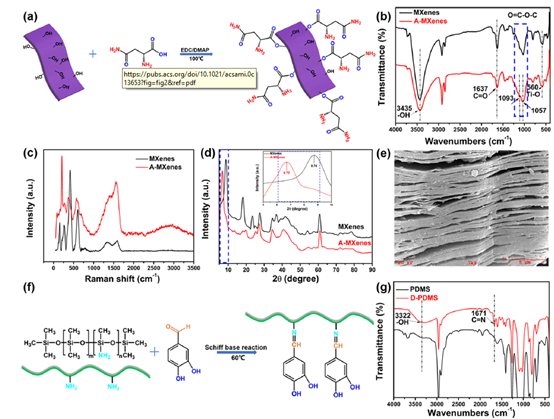
Figure 2. Physical characterization of the material.
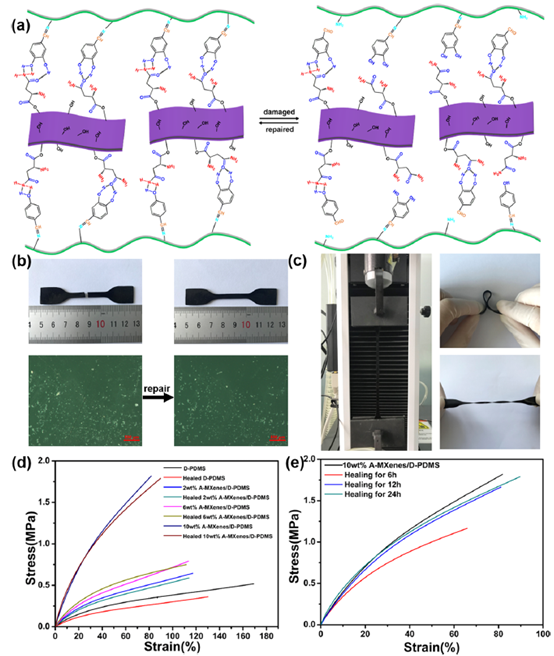
Figure 3. Characterization of mechanical properties before and after fracture healing.
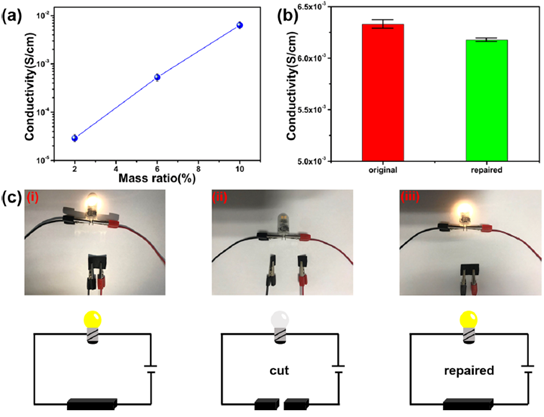
Figure 4. Characterization of electrical properties before and after fracture healing.
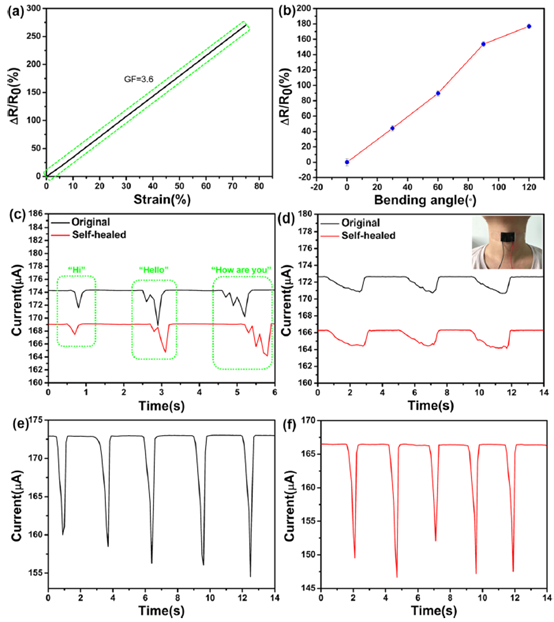
Figure 5. Human activity monitoring before and after fracture healing.




| Reminder: Beijing Beike New Material Technology Co., Ltd. supplies products only for scientific research, not for humans |
| All rights reserved © 2019 beijing beike new material Technology Co., Ltd 京ICP备16054715-2号 |